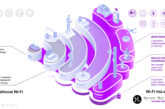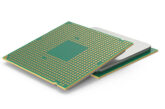
- Onomondo SoftSIM is the world’s first 100% software and agnostic IoT SIM, and now available for commercial deployment on Nordic devices
- New testing reveals that the power consumption of the radiomodule is reduced by up to 100% when using eDRX in idle mode
Earlier this year, Onomondo and Nordic Semiconductor announced a new collaboration aimed at integrating Onomondo’s world-first SoftSIM to cellular IoT end-products based on Nordic’s nRF9160 low power System-in-Package (SiP).
Today, the two organisations are announcing the successful integration of SoftSIM into nRF91 Series-based designs, meaning users of Nordic’s cellular IoT devices can now deploy the world-first technology across IoT projects, with early testing data showing a 90-100% reduction in power consumption.
Announced last year at the Made for IoT Summit, SoftSIM is the world’s first 100% software and agnostic IoT SIM. While non-physical eSIMs offer much promise, they still demand additional supporting hardware.. However, by reusing modules that already exist for cellular IoT, Onomondo’s IoT SIM can be stored and executed as pure software. In addition, with the embedded commercial agreements on eSIMs lacking the flexibility modern IoT use cases require, SoftSIM is network and platform agnostic, meaning there are no hidden lock-ins or unnecessary costs for users.
Today’s news means that users can now download SoftSIM from the Cloud, which will then be executed as software by the nRF9160 SiP’s embedded ARM Cortex-M33 application processor. The availability of SoftSIM in nRF91 Series-based designs is not only a world first, but also makes it one of the most compact and flexible solutions for cellular IoT connectivity in the market today. Without the need for extra hardware, users can significantly reduce the bill-of-materials (BoM) and simplify the design of IoT projects.
In addition, by combining SoftSIM with the most power optimized and highly integrated cellular IoT SiP on the market, the potential for low power IoT projects will be transformed. During testing, we found that using a SoftSIM reduces the current consumption by 100% compared to a physical SIM in idle, resulting in around 3.5µA. The SoftSIM itself consumes near zero current consumption in idle mode, compared to an average consumption of 46µA observed when using physical SIM cards from other connectivity providers. This means that the total average current in idle mode of the radio module can go from 52µA to 9.5µA which will greatly increase the battery lifetime of the device.
Commenting on the announcement, Michael Karlsen, co-founder and CEO of Onomondo said: “Today is an important milestone for Onomondo and our mission. Our promise has always been to break down the silos that exist between hardware and software within the IoT industry, and the successful integration of SoftSIM into nRF91 Series-based designs and now its availability to users is a huge step forward in delivering on it. The testing data already shows how much it could impact low power IoT projects globally, so we’re excited to see what the future holds as we work to build on this success and continue bringing SoftSIM to IoT users globally.”
“Nordic Semiconductor is thrilled to lead the way in the IoT industry. Back in 2015, we started developing the nRF9160, a groundbreaking product for Cellular IoT, with a vision of one day replacing the traditional SIM technology with smarter solutions,” says Svein-Egil Nielsen, CTO/VP R&D at Nordic Semiconductor.
“We’re happy that our collaboration with Onomondo brings the ‘world’s first’ SoftSIM to the market. This innovation simplifies how IoT devices connect, significantly cuts costs, enhances power efficiency, and provides more flexibility for our customers. This partnership shows our dedication to pushing the boundaries of what’s possible in the IoT world.”
Onomondo was founded on the idea that different parties from the IoT ecosystem need to work closer together. This is particularly the case with the connectivity part of the IoT spectrum, which has typically been seen as something that needs to be designed around and ‘made to fit’, rather than something where innovation can take place. SoftSIM is serving to break down these barriers, allowing users to double their devices’ lifetime, half battery consumption, drive down debugging time, and cut costs, all from functionality within the network itself.
Pavel Hübner, CEO and Co-founder of HARDWARIO, a leading provider of IoT solutions that tested SoftSIM, added: “When you think of connectivity, it’s something that should just ‘work’, no questions asked. For too long, progress in our industry has been held back by the legacy barriers between hardware and software. But it’s the innovation between Nordic and Onomondo that we’re now starting to see what’s possible when different parts of the industry collide and work more closely together. The testing data we saw was incredibly encouraging, and we’re excited to now be able to offer our users the ability to deploy the technology in the real world.”







